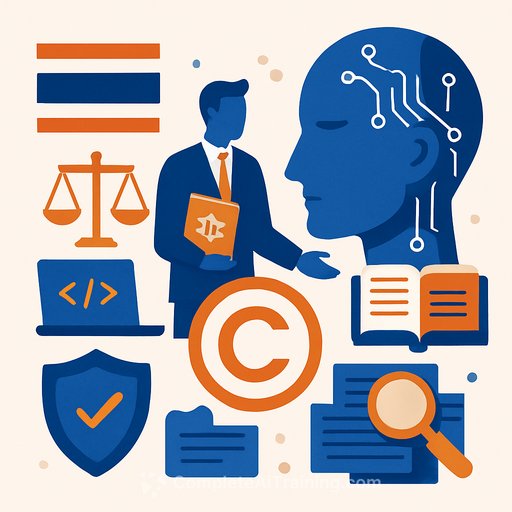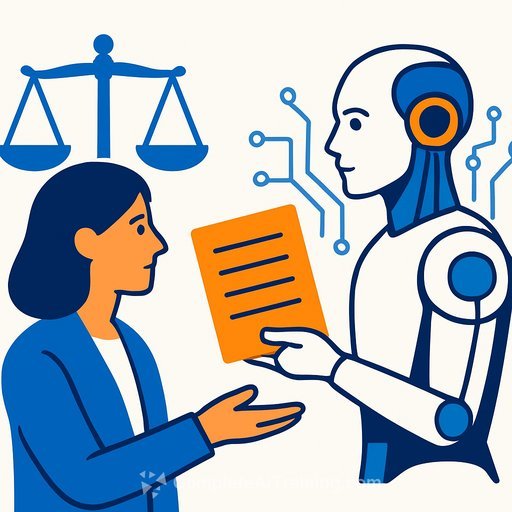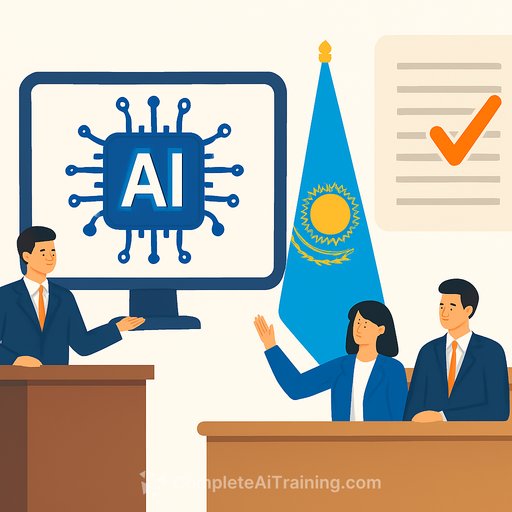AI model training depends heavily on large datasets to teach algorithms how to recognize patterns, generate predictions, or create new content. This often involves data scraping — the automated collection of information from websites and digital platforms — to build the comprehensive datasets required for effective AI development. As AI adoption grows, questions about the lawful use of third-party content, especially copyrighted materials, become increasingly important.
In Thailand, AI developers face a legal landscape shaped primarily by the Copyright Act, which does not include fair-use provisions common in other countries. This creates significant challenges related to copyright compliance, licensing, and potential infringement risks. Understanding these issues is crucial for AI professionals working with or within the Thai market.
Copyright risks in data scraping and AI model training
Thailand’s Copyright Act lacks broad fair-use or fair-dealing exceptions like those in the US. This has several implications for AI model developers:
- No protection for AI training: Using copyrighted material in AI training is considered infringement unless explicitly permitted by law or rights holders. There is no general legal exception for incorporating copyrighted works without permission.
- Increased licensing demands: Developers must identify and obtain licenses for every copyrighted work in their training data. Given the volume and diversity of data needed, this can be costly and time-consuming.
- Legal uncertainty and litigation risk: Without clear statutes or case law, AI developers operate in a legal grey area. There’s no established precedent to determine when use of copyrighted content for AI training might be permissible, leaving developers vulnerable to lawsuits, injunctions, or damages.
- Innovation barriers: The risk of liability and complex compliance requirements may discourage entities from developing or deploying AI models in Thailand, potentially slowing growth in the AI sector.
- Challenges in international collaboration: AI development often involves cross-border data sharing. Even if datasets comply with foreign laws, they may violate Thai copyright law when models are used or commercialized in Thailand, complicating partnerships and technology transfers.
Data scraping and copyright infringement
Data scraping can infringe copyright when it reproduces or extracts protected content without authorization. Thailand’s lack of fair-use exceptions heightens this risk. Copying publicly accessible website content for training datasets may still be unlawful, regardless of commercial or non-commercial intent.
Public availability does not equal free use under Thai law. Developers should also be aware that AI-generated outputs might raise copyright concerns if they closely replicate protected content from training data.
Jurisdictional issues and AI model deployment
Thai copyright law may apply to activities outside Thailand if the resulting AI models are deployed, commercialized, or accessible in the country. Even if training data complies with foreign copyright laws, the use of unauthorized copyrighted works within Thailand can constitute infringement.
This imposes extra due diligence responsibilities on those involved in international AI collaborations and technology transfers.
Strategic recommendations for AI model developers
To reduce copyright risks when developing AI models in or for Thailand, consider these practical steps:
- Secure licenses: Identify and obtain appropriate rights for all copyrighted materials in training datasets.
- Review data scraping methods: Avoid unauthorized reproduction or extraction of protected content and verify compliance with website terms of service.
- Maintain thorough documentation: Keep detailed records of licensing agreements and compliance efforts.
- Monitor legal developments: Stay informed on changes in Thai copyright law and emerging guidance related to AI and data use.
- Conduct ongoing risk assessments: Regularly evaluate legal risks tied to new datasets, model deployments, and international partnerships.
Future developments
Thailand is exploring regulatory reforms to address AI and emerging technology challenges. Discussions include potential AI-specific rules, copyright exceptions for technological uses, and updates to data protection laws. The timing and scope of these changes remain unclear. Stakeholders should stay engaged with public consultations and legal updates as they arise.
Key takeaways on AI model training in Thailand
AI developers in Thailand face significant copyright hurdles due to the absence of fair-use exceptions. This means heavier licensing burdens, higher litigation risks, and legal uncertainty that may hinder innovation and international cooperation.
While countries like Singapore and Japan have introduced text and data mining exceptions for AI training, Thailand has yet to adopt similar provisions. Close attention to compliance and legal trends is essential for responsible AI development in this jurisdiction.
For more insights on AI training and compliance, explore Complete AI Training courses tailored for developers and legal professionals.
Your membership also unlocks:









